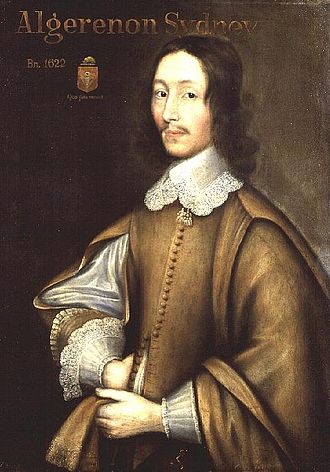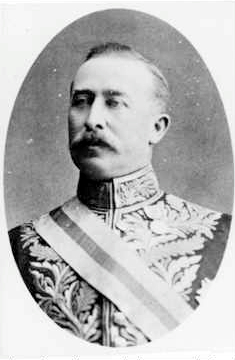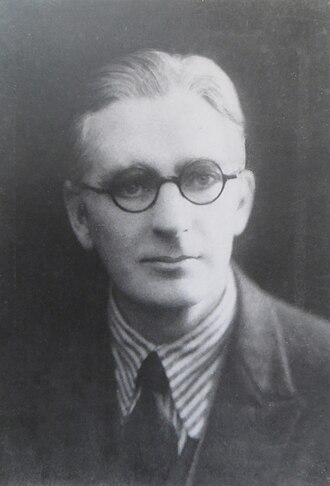Discover Your Roots
SIGN UPDiscover Your Roots
SIGN UPThe name Algernon originates from English and is predominantly used for males. It means "With A Moustache." This name is associated with a distinct facial feature, evoking a sense of sophistication and maturity. Algernon has been borne by notable individuals and fictional characters. Additionally, it has been used to name a township in Custer County, Nebraska. In popular culture, the name is linked to the Treaty of Algeron from Star Trek, the renowned science fiction story "Flowers for Algernon" by Daniel Keyes, and the legal case United States v. Algernon Blair, Inc. Furthermore, the name has been featured in an album titled Růže pro Algernon by Aleš Brichta.

Algernon Henry Blackwood, CBE (14 March 1869 – 10 December 1951) was a prominent English author known for his extensive contributions to the supernatural and ghost story genre. He was also a respected broadcasting narrator and journalist. Blackwood's literary prowess has been widely acknowledged, with the eminent critic S. T. Joshi praising his work as consistently meritorious and ranking his short story collection, "Incredible Adventures" (1914), as one of the premier collections in the weird fiction genre.Born in Shooter's Hill, Blackwood's early life was marked by diverse experiences, including periods in Canada, where he worked as a dairy farmer, operated a hotel, and became a founding member of the Toronto Theosophical Society. His career also encompassed roles as a newspaper reporter in New York City, bartender, model, journalist for The New York Times, private secretary, businessman, and violin teacher.Blackwood's literary journey flourished in his late thirties upon returning to England, where he began crafting compelling supernatural tales, eventually becoming a prolific author of short stories, novels, children's books, and plays. His profound love for nature and the supernatural led him to join The Ghost Club and explore diverse mystical and occult themes, influenced by his involvement in the Hermetic Order of the Golden Dawn.Notable works by Blackwood include "The Willows" and "The Wendigo," which have solidified his standing as a masterful storyteller

Algernon Sidney, also known as Algernon Sydney, was an English politician, republican political theorist, and colonel, born on January 15, 1623, and executed on December 7, 1683. He gained recognition as a member of the Long Parliament and commissioner of the trial of King Charles I of England. Sidney's opposition to the king's execution led to his own charge of plotting against Charles II, resulting in his execution for treason. Despite his tragic end, Sidney was revered as a "Whig patriot—hero and martyr," and his works, particularly "Discourses Concerning Government," in conjunction with John Locke's, are considered foundational to Western thought. Sidney's ideas, advocating limited government, the voluntary consent of the people, and the right to alter or abolish a corrupt government, influenced the Glorious Revolution in England and the founding of the United States. His role in the English Civil War, opposition to the king's execution, and bold stance against Cromwell's regime reflect his unwavering commitment to his beliefs. Additionally, Sidney's diplomatic efforts in arbitrating peace between Denmark and Sweden showcased his dedication to England's national interests. Despite his untimely demise, Algernon Sidney's legacy lives on as a key figure in the evolution of political thought and philosophy.

Algernon Hawkins Thomond Keith-Falconer, 9th Earl of Kintore, was a prominent British politician and colonial governor born on August 12, 1852. He was the eldest son of Francis Keith Falconer, 8th Earl of Kintore, and received his education at Eton and Trinity College, Cambridge. Lord Kintore had a distinguished career, serving as the Governor of South Australia from 1889 to 1895 and being appointed as a Privy Counsellor in 1886. He also held various military and court positions, including acting as Lord-in-waiting for Queen Victoria and Edward VII. In 1873, he married Lady Sydney Charlotte Montagu, with whom he had two sons and two daughters. Lord Kintore passed away on March 3, 1930, leaving a lasting legacy that includes several places and items named in his honor, such as the County of Kintore in South Australia and Kintore Avenue in Adelaide city centre. His daughter, Lady Ethel Sydney Keith-Falconer, eventually inherited the earldom. Lord Kintore's contributions and influence continue to be remembered and celebrated.

Algernon Cecil Newton (23 February 1880 – 21 May 1968) was an English landscape artist renowned as the "Canaletto of the canals." Born in Hampstead in 1880, Newton's artistic talent blossomed into international acclaim, with his works exhibited across the UK and internationally, alongside renowned artists such as Picasso and Braque. His legacy lives on through a catalogue raisonné of his work being prepared by his great-grandson, Sir Mark Jones. Newton's paintings can be found in public galleries globally, including the Tate collection and the Art Gallery of New South Wales in Australia. His auction record stands at £225,000 for his oil painting A Dorset Landscape. Newton's marriage to Marjorie Emilia Balfour Rider resulted in a talented lineage, including his actor son, Robert Newton, and his great-grandson, Sir Mark Jones. His artistry and vision were celebrated for transforming seemingly ordinary scenes into poetic and restful compositions, as evidenced by his paintings in the Long Gallery of the RMS Queen Mary and the Metropolitan Museum in New York. Newton's profound belief that beauty can be found in everything continues to inspire art enthusiasts worldwide.

Algernon Sidney Buford (January 2, 1826 – May 6, 1911) was a renowned Virginian businessman, politician, and lawyer. He is best remembered for his influential 22-year presidency of the Richmond and Danville Railroad, where he significantly expanded the line from 140 miles to an impressive 3,000 miles. Born in North Carolina to Virginian parents, Buford grew up in Pittsylvania County, Virginia, and pursued his higher education at the University of Virginia, earning a Bachelor of Law. His career included practicing law in Pittsylvania and Danville, as well as owning and editing the Danville Register. Buford's political involvement saw him serving in the Virginia House of Delegates in 1853 and later during the Civil War, where he enlisted in the Confederate States Army and was appointed to the Virginia militia. After the war, Buford's pivotal role as President of the Richmond and Danville Railroad led to significant growth, expanding the track and profit substantially over two decades. His expertise and contributions to the railroad industry cemented his legacy as a pivotal figure in Virginia's economic development. Buford's dedication to public service continued throughout his life, as he also served as the president of the Virginia Agricultural and Mechanical Society and made a bid for governor of Virginia in 1893. Algernon S. Buford passed away in 1911 and was laid to rest at Hollywood Cemetery in Richmond.
All images displayed on this page are sourced from Wikipedia or Wikimedia Commons.We use these images under their respective Creative Commons or public domain licenses. Wherever applicable, author attributions and license information are provided. If you believe an image is used incorrectly or outside its license terms, please contact us so that we can review and correct the issue.